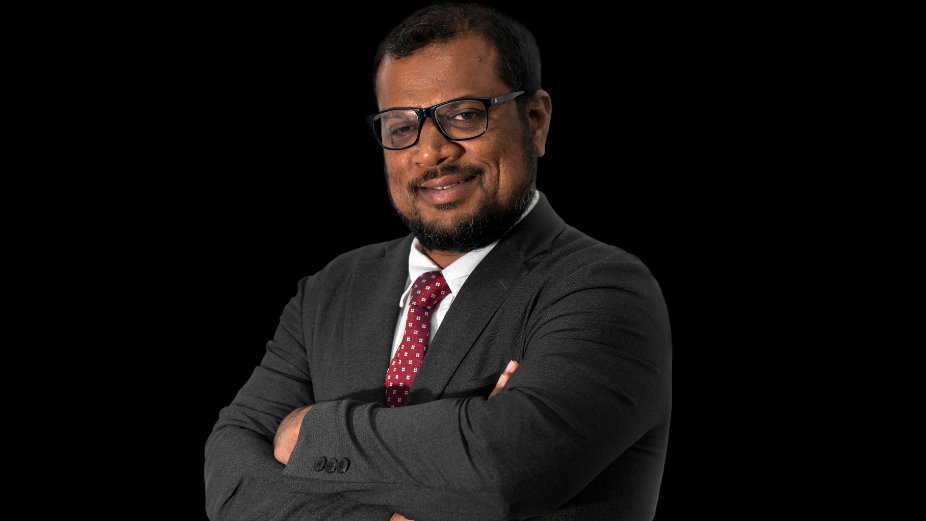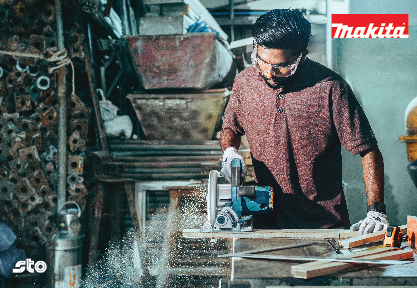In the ever-evolving construction sector of the Maldives, Shihad Ibrahim has established SJ Group as a force to be reckoned with. His strategic leadership and unwavering commitment to innovation have propelled the company to the pinnacle of the industry. From embracing cutting- edge technologies to prioritizing client satisfaction, Shihad’s vision is reshaping the construction industry of the nation, making a lasting impact on its infrastructure and development.
Shihad Ibrahim’s journey with SJ Group is a testament to his multifaceted expertise. With a strong legal background and a deep understanding of the community’s evolving needs, Shihad brings a unique perspective to the construction industry. The company’s diverse portfolio, encompassing both essential public projects and sought-after residential developments, showcases Shihad’s dedication to building a better future for the Maldives.
His business expertise and relentless pursuit of excellence, along with his legal background, have positioned SJ Group as a pillar of the Maldivian construction landscape, leaving a legacy of progress and quality.
We were fortunate to sit down with him and discuss SJ Group and their business in the Maldives.
1 – SJ Group has undergone significant expansion since its founding. Could you share some reflections on this journey?
Ever since its founding in 1996, SJ Construction has experienced tremendous growth and change. Even though our main operations started in 2002, we, the directors, actively participated in the early work, which included painting and trimming trees. The turning point came when we applied for a project that the Ministry of Tender Board had posted in 2006. Nevertheless, obtaining bid security turned out to be a significant challenge. We made multiple tries at the Bank of Maldives, but we kept running across small problems, such as inconsistent letterhead or logos. As we were about to give up, there was a glimmer of optimism when the Bank of Ceylon offered support, maybe seeing the persistence in our efforts. We were able to obtain bid security and embark on projects such as the mosques at multiple islands in the Maldives.
After the 2008 presidential election, there were even more prospects. Projects like health centres were introduced, which we successfully finished together with other projects for MVR 5–10 million. That being said, we were awarded the first school, Design and build of Milandhoo School project in 2013–2014, which was estimated to be worth MVR 53 million. This was a major turning point in our journey, indicating that we were moving on to bigger projects. In 2018, we have multiple housing projects around the Maldives, expanding our footprint throughout the islands of the Maldives.
By establishing our sibling company, SJ Trade Pvt Ltd, in 2017, we made a significant move ahead. SJ Hardware and SJ Aluminium, two stores that sold hardware, construction materials and aluminium products, were the first to open when SJ Trade Pvt Ltd first started up. Over time,in2023 we opened SJ Mall to further diversify our offerings. To meet the varied demands of our consumers, SJ Mall provides a broad selection of goods, such as food and beverages, electronics, home appliances, and furniture.
Even though our early attempts since 2017 to get into real estate were unsuccessful, our persistence and determination won out, and we successfully launched SJ Creek, our first real estate project. We are excited to begin work on SJ Nove, our second residential project, after overcoming several challenges, including unreasonable pricing demands. Our path highlights the virtues of tenacity, willpower, and aspiration as we proceed from building to real estate development.
Additionally, our focus in the current year extends beyond our existing ventures. We are actively pursuing opportunities in two additional sectors: the financial sector and the tourism sector. Our aim to consistently grow and diversify our business portfolio is in line with our strategic expansion, which shows our dedication to investigating fresh opportunities for development and innovation.
2 – The construction industry can be a competitive and challenging landscape. What do you see as the biggest challenge facing SJ Group currently, and how do you plan to navigate it?
SJ Construction is a well-known public sector contractor; about 95% of our portfolio consists of government contracts. Getting the go-ahead from government officials is one of our biggest challenges. Our experience with the Dharumvantha New School project serves as an example of this problem. Our experts noticed that the foundation plans lacked the essential strength for the proposed structure just as we were about to pour concrete for the foundation.
The Ministry of Education first disagreed and pressed us to move forward with building despite our misgivings. But after careful examination by our engineers and experts from the design consultant, it was evident that the proposed structure could not be built according to the original blueprints. As such, we had to make revisions to the designs, a procedure that lasted almost three months. There were still idle charges, labour costs, overhead charges and material waste associated with the building’s hold-up. Notably, despite the contractual provision for compensation in such circumstances, these charges were not reimbursed.
Compounding this challenge is the delayed payment process by the government. While the agreement stipulates payment within 28 days of invoicing, it typically takes up to 60 days for invoices to be posted and another 14 days for processing from the Ministry of Finance. This results in an average delay of three months in receiving payment for our services, putting strain on our financial resources.
Moreover, the lack of responsiveness and support from government officials exacerbates our challenges. Simple queries or requests for clarification on project details often go unanswered for extended periods, hindering project progress.
It’s important to note, though, that other government agencies, the Ministry of Housing (formerly the Ministry of Planning), have shown greater responsiveness, especially when it comes to housing projects. In a similar vein, clients such as MNU have responded promptly, which has made project execution go more smoothly.
While sourcing finance hasn’t been a significant challenge for us, obtaining foreign currency for importing materials has presented logistical hurdles. Furthermore, we encounter challenges with the Maldives Inland Revenue Authority (MIRA). Despite fulfilling our obligations by completing public sector projects, we’re compelled to remit GST upon invoicing, irrespective of whether we’ve received payment from the government. Once we issue an invoice, we become liable for taxation, yet the significant delays in receiving payment from the government for the services rendered exacerbate our difficulties.
In summary, addressing these challenges requires proactive engagement with government authorities, streamlining payment processes, and seeking resolution to taxation issues. Despite the obstacles, we remain committed to delivering quality projects and navigating the construction landscape with resilience and determination.
3 – The COVID-19 pandemic caused disruptions across industries. How has SJ Group adapted to the challenges and ensured business continuity?
SJ Groups managed to navigate the challenges posed by the COVID-19 pandemic with minimal disruption to our operations. Thankfully, SJ Construction was largely unaffected, allowing us to maintain regular salaries for our staff without any cuts in wages or reductions in benefits, including overtime pay. In fact, we took proactive measures to support our employees’ welfare during this time, offering family support, providing welfare funds, providing bonuses, and extending loans as needed.
The only setback we encountered was related to our sewerage projects, where we experienced losses. It is imperative to highlight that the loss incurred in our sewerage projects was deliberate and attributable to the actions of certain officials within the Ministry of Planning. Lockdowns and border closures in some countries, especially France, where we sourced goods, made it impossible to obtain supplies. Everyone was well aware of the lockdown. In fact, the Maldives was in lockdown as well. Even after we made several attempts to explain the difficulties and delays brought on by the lockdowns, the officials managing the sewerage projects from the ministry persisted in pressuring us, giving the impression that the work was incomplete. Considering that other contractors were granted extensions and leniency due to the pandemic, it seemed biased.
4 – Sustainable construction practices are gaining importance globally. How does SJ Group incorporate sustainability considerations into its projects?
From 2002 to 2010 in the Maldives, construction practices often caused disruptions in neighbourhoods, with areas closed off and roads obstructed by dust and debris during foundation concrete. However, SJ Construction initiated a significant change in 2013 by introducing environmentally friendly machinery like concrete pumps, minimizing environmental impact while enhancing efficiency.
Moreover, we’ve embraced technological advancements integrating the latest survey equipment, replacing traditional methods with more accurate and efficient alternatives.
Despite these advancements, the construction industry in the Maldives has yet to fully align with technological progress. While cutting-edge technologies like robotic plastering machinery, Construction Drones, and Intelligent Compaction Rollers exist, the prevailing Maldives construction contracts and methodologies have not evolved to accommodate such innovations. This lack of upgrade restrains us from fully utilizing advanced technologies, thereby impeding our ability to implement more sustainable and efficient construction practices.
It is imperative to emphasize that the government should update the technical specifications and methodologies within construction contracts to align with advanced technologies.
5 – The construction industry is constantly evolving. How does SJ Group stay ahead of the curve in terms of modernizing techniques and practices?
SJ Groups stays ahead of the curve in modernizing construction techniques and practices through a multifaceted approach that emphasizes innovation, collaboration, and adaptability.
Firstly, SJ Group invests heavily in research and development, constantly exploring emerging technologies and methodologies that can enhance efficiency, sustainability, and safety in construction. Whether it’s adopting Building Information Modeling (BIM) for more precise project planning or integrating advanced construction materials for improved durability, the company remains at the forefront of technological advancements.
Moreover, SJ Groups fosters a culture of continuous learning and improvement among its workforce. Employees are encouraged to participate in training programs, workshops, and industry conferences to stay updated on the latest trends and best practices. This commitment to professional development ensures that the team is equipped with the knowledge and skills necessary to implement cutting-edge techniques on-site.
Additionally, SJ Groups prioritizes collaboration with stakeholders across the construction ecosystem. By engaging with architects, engineers, subcontractors, and clients from the early stages of a project, the company can leverage diverse perspectives and expertise to identify innovative solutions and streamline processes.
Furthermore, SJ Group is quick to adapt to regulatory changes and market demands. Whether it’s incorporating sustainable building practices to align with environmental regulations or embracing modular construction to meet the growing demand for rapid project delivery, the company demonstrates agility in responding to evolving industry dynamics.
In essence, SJ Group’s commitment to innovation, collaboration, and adaptability enables it to stay ahead of the curve in modernizing construction techniques and practices, ensuring the delivery of high-quality projects that meet the needs of clients and communities alike.
6 – Could you elaborate on your role in contributing to the development of the Construction Bill in the Maldives? How do you see this legislation shaping the industry?
Our involvement in contributing to the development of the Construction Bill in the Maldives has been a significant endeavour for us, reflecting our commitment to advancing the construction industry in the country. When the Committee on National Development of the Parliament extended an invitation for professional opinions on the official draft, our chief engineer took an active role in this process, offering valuable insights and recommendations garnered from our experience and expertise in the field.
However, despite our sincere efforts to contribute constructively to the development of the legislation, we have observed limited interest from the government in considering our suggestions and opinions. This lack of engagement can present challenges in ensuring that the final bill adequately addresses the diverse needs and concerns of stakeholders within the construction sector.
Nevertheless, our participation in this legislative process underscores our dedication to fostering positive change and promoting best practices within the industry. While the current situation may present obstacles, we remain hopeful that ongoing dialogue and collaboration between industry professionals and government representatives can lead to the creation of a robust Construction Bill that effectively regulates the sector and drives sustainable growth.
Looking ahead, we believe that the implementation of comprehensive legislation tailored to the specific context of the Maldives has the potential to shape the industry in numerous ways. By establishing clear standards, guidelines, and regulations, the Construction Bill can enhance transparency, accountability, and quality assurance throughout the construction process. Moreover, it can facilitate the adoption of modern construction practices, promote innovation, and ultimately contribute to the development of resilient infrastructure that supports the country’s economic and social objectives.
Despite the current challenges, we remain committed to actively engaging with stakeholders and advocating for policies that promote the long-term sustainability and competitiveness of the construction industry in the Maldives. We are optimistic that through continued collaboration and dialogue, we can collectively overcome barriers and contribute to the realization of a vibrant and thriving construction sector in the country.
7 – Artificial Intelligence (AI) is reshaping many industries. Do you envision a role for AI in the future of construction in the Maldives? If so, in what ways?
Artificial Intelligence (AI) undoubtedly holds immense potential to revolutionize the construction landscape in the Maldives. Currently, we are heavily utilizing AI for tasks such as surveying and modelling, which has already led to significant improvements in efficiency and accuracy within our projects. However, while AI presents exciting opportunities for innovation, it’s crucial to recognize the need for responsible implementation to mitigate potential socio-economic impacts.
One of the key considerations is the potential impact on employment. While AI can automate certain tasks and processes, leading to increased efficiency, there is a valid concern about job displacement. It’s essential to strike a balance between leveraging AI for productivity gains while also ensuring the preservation and creation of meaningful employment opportunities within the construction sector.
Moreover, existing regulations, particularly within construction contracts, can pose barriers
to the full integration of AI technologies. Contractual restrictions may limit the adoption of innovations like robotic bricklaying and thermochromic coatings, which have the capacity to significantly enhance productivity and the quality of our work. Addressing these regulatory challenges will be essential to unlocking the full potential of AI in construction.
Despite these challenges, there are numerous ways in which AI can continue to shape the future of construction in the Maldives. For instance, AI-powered predictive analytics can optimize project planning and scheduling, leading to more efficient resource allocation and reduced project delays. Additionally, AI-driven algorithms can analyze vast amounts of data to identify trends and patterns, enabling better decision-making and risk management throughout the project lifecycle.
Furthermore, AI technologies can enhance safety on construction sites through the implementation of advanced monitoring systems and predictive maintenance solutions. By leveraging AI-enabled sensors and drones, construction companies can proactively identify potential hazards and improve overall job site safety.
8 – Where do you see the construction industry in the Maldives heading in the next 5-10 years, and how is SJ Group positioning itself to thrive in this evolving landscape?
In the next 5-10 years, we anticipate a substantial surge in infrastructure projects in the Maldives, driven by initiatives such as Apartment buildings, Road Developments, building bridges and metro systems, and developing new islands like Giraavaru, RasMale, and Gulheefalhu. This presents a golden opportunity for SJ Group to thrive in our local market without relying on foreign outsourcing. Moreover, as the resort industry in the Maldives continues to flourish, we aim to embrace this growth by developing unique resorts that celebrate our traditional culture, adding a distinctive touch to the tourism landscape.
With dredging and reclamation projects progressing in Ras Male, Giraavaru, and Gulheefalhu, we foresee a corresponding increase in construction activity. This will coincide with a significant migration of individuals to key areas like Male’, Hulhumale, RasMale, Gulheefalhu, and Giraavu. As the population continues to swell, there will be heightened demand for essential infrastructure such as schools, health centers, hospitals, and universities, providing us with abundant opportunities for expansion and growth.
As the country’s lifestyle becomes more luxurious, we anticipate changes in social housing, potentially shifting towards labour quotas or even creating ghost cities. However, despite this trend, we foresee an increasing demand for upscale housing among Maldivians. This is why SJ Group is well-positioned to offer luxury residential developments like SJ Creek and SJ Nove, catering to the evolving housing needs of our community.
In conclusion, the future of the construction industry in the Maldives is brimming with opportunities, from major infrastructure projects to luxury residential developments. SJ Group is poised to capitalize on these chances, leveraging our skills and knowledge to support the growth of Greater Male and beyond, contributing to the prosperity and development of our nation.













